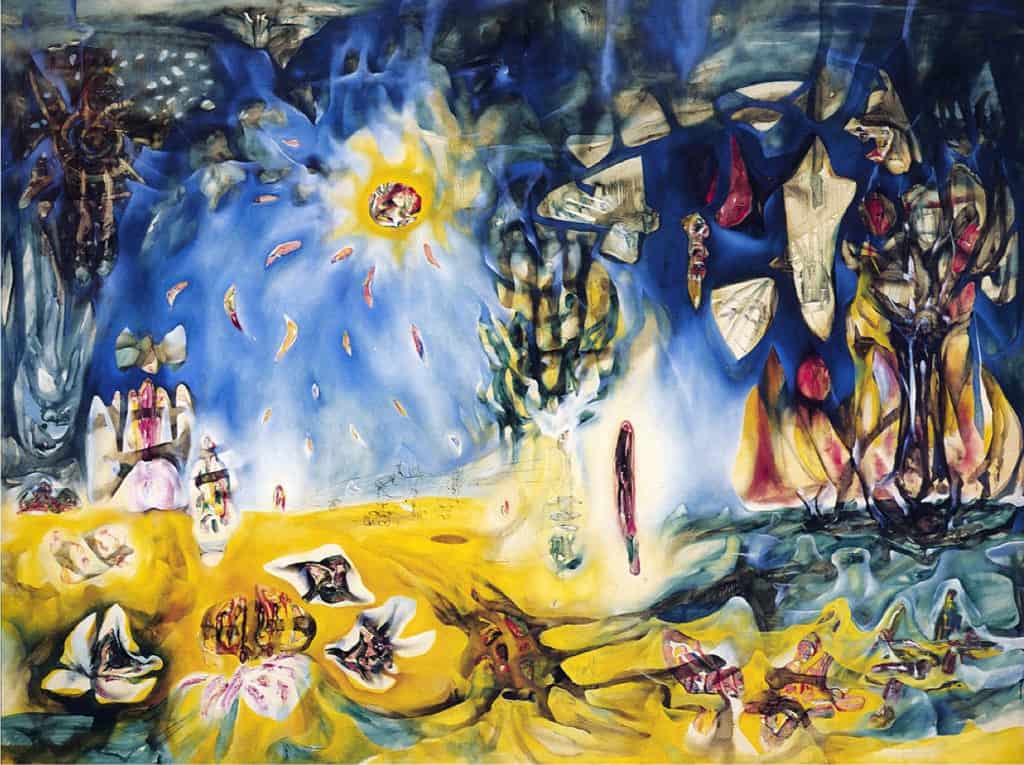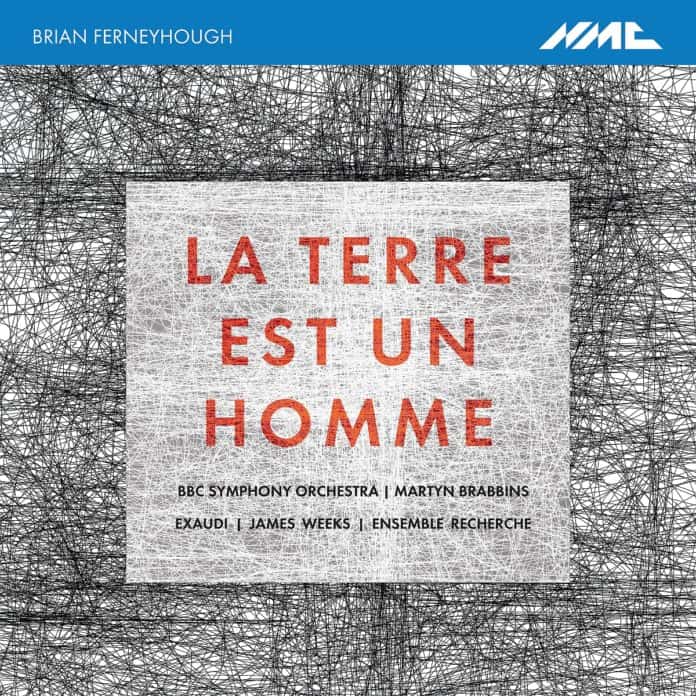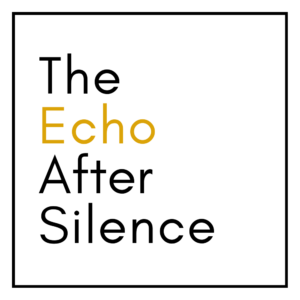OK, this is as complex as it gets: Ferneyhough’s La Terre est un Homme. It seems like a nightmare trying to imagine the rehearsals for the players, struggling to get the notes right and count music under such specific musical notation! Is that score even possible? Having a look at it simply gives you a headache. But all this shouldn’t really matter because the music is sublime.
The inspiration for the piece came both when Ferneyhough saw a painting with the same name by Chilean painter Roberto Matta and after a dream he had. It is a work for a large orchestra which starts with explosive fragments from the plethora of instruments played with the utter attention to dynamics and every detail obsessively taken into account. I am not sure one can speak of clusters of multi-layered sounds or individual solo lines exploding like millions of fireworks or meteor showers. To say that the work is dense or complex would be an understatement.

As for Plotzlichkeit, the more recent piece, it is more accessible and less intricate (but still more complicated than most contemporary compositions). The three female singers blend in the orchestra as if they were wind instruments, their human origin successfully disguised in their wordless contribution. Liber Scintillarum is a work from the same period, composed in 2012. The musical fragments here are slightly more obvious albeit equally dense. This is in fact a 20-minute sextet, with the instruments often pushed to their limits and some striking moments of silence in between, giving the work a feeling of suspension.
The Missa Brevis is the oldest work on the current release, a short a capella mass, dating from 1969, which reminds one of other contemporary vocal works from that musically experimental period. The demands on the vocalists are considerable with some nearly impossible high notes in the finale of the Benedictus and in the poignant Agnus Dei with its extraordinary ending. Kudos to the ensemble EXAUDI and their conductor James Weeks for an impressive performance.
The highlight of the disc, though, remains La Terre est un Homme. It is a densely orchestrated work that is overambitious in scope, despite lasting a mere 13 minutes (in this recording). Leaving its complexity aside, this could well be one of the really important pieces of contemporary music of our times and a work that demands to be part of the core contemporary repertoire (if such a thing will ever exist, bearing in mind the never-ending recycling of the classical repertoire). It’s a piece where the notion of actuality is ever-present. As if all time were now: the need to wait is obsolete. By now, time seems anachronistic.
The BBC Symphony Orchestra with all the players involved are worthy of the highest praise for having committed themselves to such awe-inspiring, technically daunting music. As for those who might claim that such complex scores, with hyper-analytical annotations, could well be performed by computers they simply miss the point. First, the composer himself chose to write a score for a human orchestra. He could have chosen to compose an electronic work, but he didn’t. This, alone with the fact, that he left precise instructions for its performance strengthens the belief that such contemporary pieces, not only are open to multiple interpretations but also need extra guidance until they become part of the performing tradition.
Let me exaggerate a bit and say that all the players and soloists involved are heroes, the conductor Martyn Brabbins for managing to bring everything together (one can only imagine how painstaking the rehearsals must have been), and of course Ferneyhough himself, a composer so original and willing to push musical expression to its limits, despite criticism about the complexity in his works. This is a significant release.
Rating: *****
Olivia Robinson soprano
Jennifer Adams-Barbaro soprano
Cherith Millburn-Fryer alto
EXAUDI
James Weeks conductor
BBC Symphony Orchestra
Martyn Brabbins conductor
ensemble recherche includes:
Martin Fahlenbock flute
Jaime González oboe
Shizuyo Oka clarinet
Melise Mellinger violin
Barbara Maurer viola
Åsa Åkerberg violincello
Other reviews and articles on the piece:






